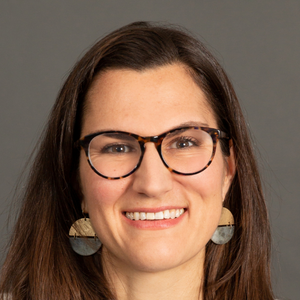Summer Intern Spotlight: Crystal Banh
Within the long-term care landscape, publicly funded “consumer-directed” (also known as “self-directed”) models of care delivery provide individuals receiving long-term services and supports (LTSS) the ability to choose and employ their own care providers. In many cases, these programs enable individuals to pay certain family members or friends for the support they need, while in other cases, individuals find workers through matching service registries or other recruitment methods. The COVID-19 pandemic brought additional attention to consumer direction and a majority of states used Appendix K flexibilities to expand eligibility for payment to additional family members, such as legal guardians and spouses (though not all states are making these changes permanent). Expanding consumer direction is seen as a key strategy to strengthen access to LTSS in the context of widespread direct care workforce shortages.

Crystal Banh – Brown University Student
In the summer of 2023, PHI was fortunate to host Crystal Banh, a junior from Brown University, as an intern researching consumer-directed care programs. In particular, Crystal examined and cataloged pandemic Appendix K modifications that changed eligibility in who was able to be paid as a caregiver. Crystal interned with PHI through Brown University’s Careers for the Common Good program, which encourages Brown students to learn about nonprofits, start-ups, and public service agencies and enhances their eligibility for working in these sectors after graduation.
Jessica King, PHI Research & Evaluation Associate, recently spoke with Crystal about her internship experience, what she learned, and her plans to integrate this experience into her academic and career trajectory.
What inspired you to apply for this internship?
Crystal Banh: Over the past semester, I became interested in learning more about the long-term care field due to my own familial background—both of my parents are providers for a home- and community-based program in California called in-home supportive services, or “IHSS.” My grandma recently transitioned to a nursing home, but IHSS was a really great way for my parents to be able to take care of her before her condition worsened. What attracted me to PHI was your focus on the direct care workforce.
What are some things you learned that you’ll be carrying forward with you as you return to Brown this fall?
Crystal: I’m taking back a lot of knowledge. I’m really interested in disability justice, so I appreciated being able to learn more about the self-directed care model versus the agency model and how we can give autonomy to older adults and people with disabilities through these services. I also learned to differentiate and categorize the different Medicaid waivers that offer self-directed care options, such as 1115 demonstration waivers and the various home- and-community-based waivers, like 1915(c) and others.
I also learned more about the direct care workforce and the challenges within it. Learning how home care and community-based programs are a way to avert nursing home admission and help people live at home is really applicable to the work that I want to do in my future.
Relatedly, how does this internship fit into your academic interests?
Crystal: I’m interested in reducing burnout among family caregivers within the Vietnamese American population. And due to this internship, I think I want to research direct care workers as well. I really saw how home- and community-based programs can be used as tools to help with the financial costs and the stress related to caregiving because I know that was a big thing for my family—it is very expensive to take care of someone. I was also interested in learning about services, such as 24-hour care, that can help those needing care to be able to stay in their own homes. My grandma currently lives in a nursing home because she needs that 24-hour care.
What was your favorite aspect of the internship? Least favorite?
Crystal: My favorite part was just being with the people at PHI. I found that the people at PHI were so open to having discussions and are passionate about supporting the direct care workforce. I’m also passionate about the long-term care field in general and it was really nice to be in a space where a lot of people were interested in similar topics. My least favorite thing related to a research struggle I had—it was hard sometimes to find information about what I was researching, and I often found contradictory information. Learning how to deal with those data collection challenges when I came across them was a big learning curve.
What are your top three tips for a future PHI intern?
Crystal: First, be organized. Working remotely, it can be difficult to focus because you’re at home and there are a lot of distractions. Second, schedule time blocks to work and take breaks to have a healthy balance of work and life. Finally, ask a lot of questions and engage with the people at PHI—they’re so knowledgeable, and even if they don’t know the answers, they’ll work with you to find a way to answer your question or at least give you a clearer understanding of the work. I was able to learn a lot this summer.
The findings from Crystal’s research will help inform PHI’s broader research and advocacy efforts around consumer direction and the independent provider workforce, including through the Together In Care Direct Care Worker and Family Caregiver Initiative, which is a partnership between PHI and the National Alliance for Caregiving (NAC).






